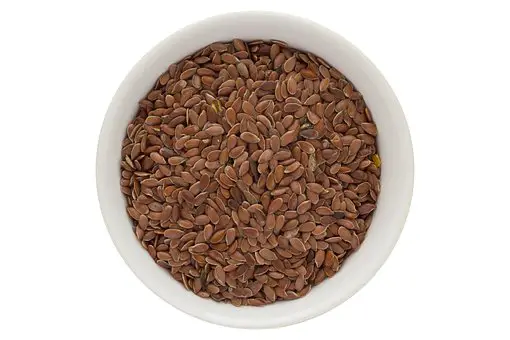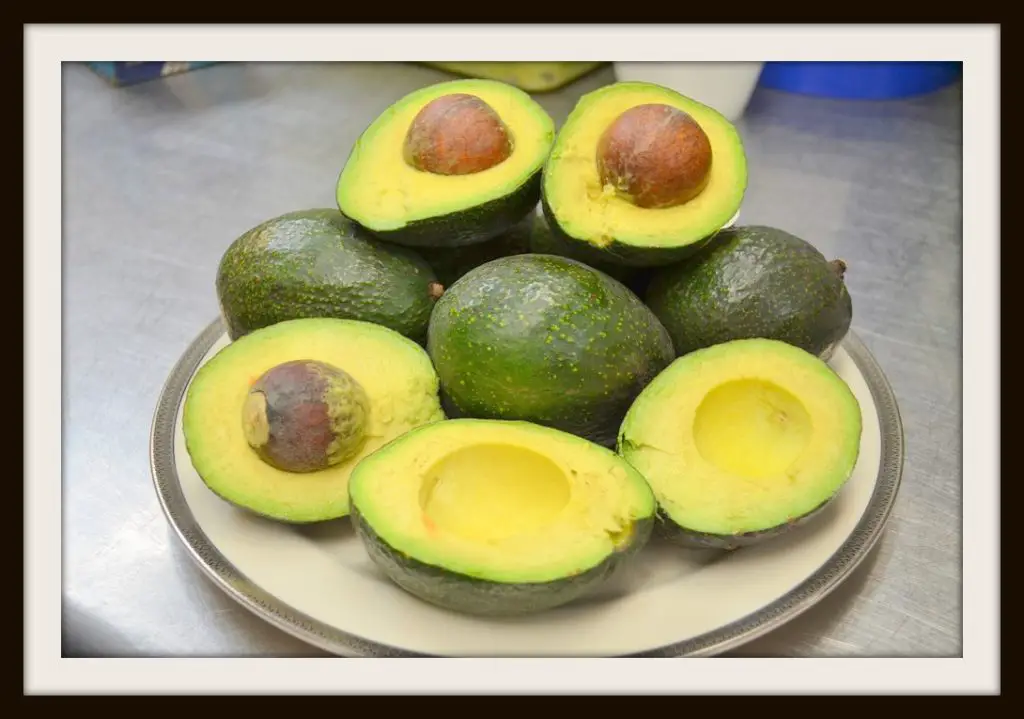Smoothie Ingredients For Sensitive Stomachs
When you are experiencing digestive problems, smoothies are a great way to keep your body balanced. These energizing drinks are a great way to get more vitamins and minerals into your system and soothe your GI tract. Here are a few smoothie ingredients that are great for sensitive stomachs. Bananas contain high amounts of potassium and magnesium, which can settle the digestive system. Raspberries are high in fiber and fight constipation. Avocados are a good choice as they are nutrient-dense and have a low-fructose content. And don’t forget Greek yogurt, which is a staple for gut support, with probiotic cultures that strengthen your digestive tract and increase good bacteria. You can also use ginger, a natural antimicrobial.
When you purchase through our links, we may earn a commission. As an Amazon Associate I earn from qualifying purchases.

Smoothies are a great food option for people with digestive challenges
If you have digestive challenges, smoothies are a fantastic way to rebalance your system. Smoothies are nutritious and easy to prepare, and are great for breakfast, snacks, and between-meal drinks. Digestive health is closely linked to overall body health, and a healthy digestive tract is essential for optimal health. In addition to the health of the digestive tract, smoothies can help you feel more energetic, and can help you manage your mood and stress levels.
Smoothies typically start with liquid, which is typically water or dairy milk. Other ingredients can be used, such as thick Greek yogurt. Greek yogurt is particularly beneficial for people with digestive challenges, as it adds protein and calories to a smoothie. Yogurt also introduces probiotics, which may help regulate your body’s balance of digestive acids. Adding a tablespoon of coconut oil or avocado to your smoothie also adds beneficial fats.
For a creamy base, add oats. Oats improve digestion. Adding oats to your smoothie helps increase the amount of “good” bacteria in your digestive tract. If you have trouble digesting the smoothie base, you can add cinnamon or other spice to the smoothie. A smoothie is the perfect way to avoid bloating or constipation. Just be sure to include healthy ingredients.
They boost your body’s vitamins and minerals
There are many reasons to add probiotics to your smoothie. They help you eliminate toxins and boost your body’s vitamin and mineral content. A few ingredients that are particularly good for sensitive stomachs include whey protein and nonfat dry milk. Kefir is a probiotic drink with less sugar than yogurt. Kefir can be consumed by people with problems digesting dairy. Nonfat dry milk also adds creaminess and a substantial dose of protein.
Fruit is another great ingredient to include in a smoothie. Fruits are high in vitamins and minerals and are a good source of heart-healthy antioxidants. Women need two to three servings of fruit daily while most men should eat between five and nine. A serving is roughly equal to 3/4 cup of fruit. One large banana counts for two servings. If you want to boost your smoothie’s nutritional value, consider using single-serving baggies of fruit instead of ice. Fresh vegetables are also great for your diet and are great for boosting your body’s vitamins and minerals.
Ground flaxseed is an excellent source of omega-3 fatty acids. It is also high in fiber and offers additional protein and healthy fats. One tablespoon of ground flaxseed adds about 60 calories and 4.5 grams of unsaturated fat and three grams of protein. Wheat germ is another good addition. It has omega-3 fatty acids, which are essential for a healthy body.
They keep your gut balanced
You’ll find that smoothies are a great way to pack a nutritious punch. A smoothie can serve as a portable meal and allows you to consume larger amounts of superfoods, such as green leafy vegetables. For those with sensitive stomachs, smoothies can help with digestive issues, as plant fibers are broken down into smaller pieces by the blending process. The smaller pieces may be easier to digest, and they can improve the balance of the good and bad bacteria in your digestive tract.
To add to the gut-friendly properties of a smoothie, try adding cruciferous vegetables. They’re packed with fiber and omega-3 fatty acids that your body can digest. Yogurt is another good choice. The probiotics in yogurt keep your gut bacteria in check. Other gut-friendly ingredients include prune juice, which is naturally sweet and can be added to any dish for a boost in fiber. Fresh ginger can also speed up the movement of food through your digestive tract.
Other foods that are beneficial for your digestive health include cucumbers, which are high in water. They help to relieve bloating caused by dehydration. Another good source of soluble fibre is chickpeas, which contain raffinose, a type of fatty acid that feeds beneficial bacteria and reduces the population of harmful strains. Avocados are also rich in healthy nutrients.
They soothe irritated GI tract
A smoothie with these five healthy ingredients can soothe an upset stomach and promote healing. A banana is a natural remedy for digestive upset, and it also protects the lining of the stomach from harmful acids. This smoothie can be made using any Nutribullet smoothie system. You can also eat one banana to add sweetness and nutrient value to your smoothie. Bananas are highly digestible, so they’re ideal for smoothies because they are easy on the stomach.
If your stomach is inflamed, try to include probiotics in your smoothie. Lactose in cow’s milk can cause belly discomfort in lactose-intolerant people. You can also add ice to your smoothies for rounding out the taste. Kefir is fermented milk that contains many beneficial bacteria. It’s also low-lactose, and makes a great smoothie base.
They help you feel full longer
The right smoothie ingredients are key to achieving your weight loss goals and curbing your cravings. They contain at least 4 grams of fiber, 14 grams of protein, and naturally derived caffeine. Plus, they’re only 280 calories per twenty-ounce serving. So you can easily substitute your usual meal with a smoothie and still feel satisfied for a long time. So, what’s your next smoothie?
First and foremost, you’ll want to choose smoothie ingredients that are good for your gut health. Many smoothies contain dairy, which can be hard on the stomach. Choosing plain Greek yogurt can help. If dairy is your problem, you may want to opt for a vegan version instead. The vegan option, however, may contain extra sugars that can make you feel sick. You’ll also need a liquid base.
To boost your smoothie’s protein content, try adding a bit of Greek yogurt or milk to it. These two ingredients are known to help you feel full longer. Additionally, they contain healthy fat that helps the body absorb fat soluble vitamins, which also contribute to a feeling of fullness. Finally, don’t forget to add leafy greens to your smoothie. These are full of nutrients and contain fiber that slows down the digestion process, helping you feel satisfied for longer.
They are low in FODMAPs
High-FODMAP foods may cause digestive problems for some people. These include grains, legumes, and citrus. Low-FODMAP smoothies are a great way to stay healthy while preventing problems. Below is a guide to FODMAP friendly smoothies. The FODMAP-free list is updated regularly. To find out which smoothies are low in FODMAPs, visit the FODMAP Friendly website.
Try to use organic, local fruit whenever possible. Locally-grown fruit is better for those with sensitive stomachs. You can also use nut butters to add flavor. Blackberries and avocados are both high in polyols, which are FODMAPs. Aim to use fruit that is not too sweet. Some fruit is low in FODMAPs, so be sure to read labels carefully.
Changing your diet can help with a variety of digestive problems, from constipation to bloating. In addition to reducing the FODMAPs in your diet, a low-FODMAP diet can prevent a number of digestive symptoms, including diarrhea and bloating. Listed below are some low-FODMAP smoothie recipes for preventing digestive discomfort. But remember, not every smoothie is suitable for people with sensitive stomachs.
They contain probiotics
There are plenty of health benefits associated with eating foods that are fermented or contain probiotics. These beneficial bacteria help your digestive system work smoothly. These bacteria can be found in fermented foods, as well as supplemental forms like liquid drops and pills. In addition to adding probiotics to smoothies, these foods can be eaten with a snack, too. Smoothies for sensitive stomach contain probiotics that are a great way to get more of these beneficial bacteria into your daily diet.
There are several foods that contain probiotics, including yogurt. In addition to yogurt, probiotics can also be found in raw cheese made from unpasteurized milk. But be careful when buying raw milk. Raw milk may contain dangerous bacteria, which can cause life-threatening illness if consumed regularly. As a result, it is important to consult your doctor before starting any new supplementation program for your child.
A high-protein protein smoothie can be made with natural Greek yogurt, blueberries, and oat milk. This delicious treat contains quality gut-supporting nutrients and is a great choice for children and adults with gastrointestinal disorders. Try adding a dollop of Greek yogurt to your smoothie to increase the amount of beneficial bacteria in your gut. Ginger can also help settle the digestive system and fight constipation.










